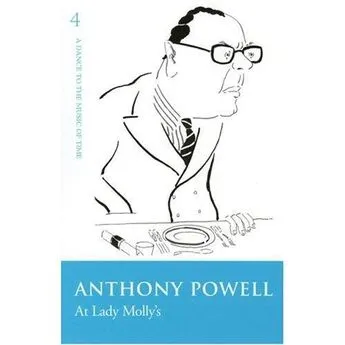Anthony Powell - A Buyers Market
- Название:A Buyers Market
- Автор:
- Жанр:
- Издательство:Arrow
- Год:2005
- ISBN:нет данных
- Рейтинг:
- Избранное:Добавить в избранное
-
Отзывы:
-
Ваша оценка:
Anthony Powell - A Buyers Market краткое содержание
Anthony Powell's universally acclaimed epic A Dance to the Music of Time offers a matchless panorama of twentieth-century London. Now, for the first time in decades, readers in the United States can read the books of Dance as they were originally published-as twelve individual novels-but with a twenty-first-century twist: they're available only as e-books. The second volume, A Buyer's Market (1952), finds young Nick Jenkins struggling to establish himself in London. Amid the fever of the 1920s, he attends formal dinners and wild parties; makes his first tentative forays into the worlds of art, culture, and bohemian life; and suffers his first disappointments in love. Old friends come and go, but the paths they once shared are rapidly diverging: Stringham is settling into a life of debauchery and drink, Templer is plunging into the world of business, and Widmerpool, though still a figure of out-of-place grotesquerie, remains unbowed, confident in his own importance and eventual success. A Buyer's Market is a striking portrait of the pleasures and anxieties of early adulthood, set against a backdrop of London life and culture at one of its most effervescent moments.
A Buyers Market - читать онлайн бесплатно полную версию (весь текст целиком)
Интервал:
Закладка:
She ran off before either Tompsitt or I could even rise or say good night. We sat for a minute or two together, finishing our wine: Tompsitt smiling rather acidly to himself, as if aware of the answer to a great many questions, some of them important questions at that.
“Do you know the chap Barbara poured sugar on?” he asked, at last.
“I was at school with him.”
“What was he like?”
“Rather the kind of man people pour sugar on.”
Tompsitt looked disapproving and rather contemptuous. I thought at the time that his glance had reference to Widmerpool. I can now see that it was directed, almost certainly, towards my own remark, which he must have regarded, in some respects justly, as an answer inadequate to his question. Looking back on this exchange, I have no doubt that Tompsitt had already recognised as existing in Widmerpool some potential to which I was myself still almost totally blind; and, although he may neither have liked nor admired Widmerpool, he was at the same time aware of a shared approach to life which supplied a kind of bond between them. My own feeling that it would have been unjustifiable to mention the story of the banana, because I felt myself out of sympathy with Tompsitt, and, although often irritated by his behaviour, was conscious of a kind of uncertain loyalty, even mild liking, for Widmerpool, probably represented a far less instinctive and more artificial or unreal understanding between two individuals.
It would, indeed, be hard to over-estimate the extent to which persons with similar tastes can often, in fact almost always, observe these responses in others: women: money: power: whatever it is they seek; while this awareness remains a mystery to those in whom such tendencies are less highly, or not at all, developed. Accordingly, Tompsitt’s acceptance of Widmerpool, and indifference, even rudeness, to many other persons of apparently greater outward consideration — in so much as I reflected on it — seemed to me odd; but this merely because, at that time, I did not understand the foundations required to win Tompsitt’s approval. In any case, I saw no advantage in inquiring further into the matter at that hour, having myself already decided to go home to bed as soon as possible. Tompsitt, too, had no doubt had enough of the tête-à-tête . He rose, as a matter of fact, before I did, and we walked out together, separating as soon as we had passed through the door, Tompsitt strolling upstairs again towards the ballroom, while I made for the cloak-room. Eleanor was crossing the hall.
“Off to get my bonnet and shawl,” she remarked, delighted that for her, at least, another dance was at an end.
I handed in the ticket, and was waiting while they looked for my hat, when Widmerpool himself appeared from the back regions of the house. He, and no doubt others too, had engaged in a thorough scouring of his person and clothes, most of, the sugar having been by now removed, though a few grains still glistened round the button-hole of his silk lapel. He appeared also to have recovered his normal self-possession, such as it was. One of the servants handed him an opera hat, which he opened with a sharp crepitation, placing it on his head at a tilt as we went down the steps together. The night was a little cooler, though still mild enough.
“Which way do you go?” he asked.
“Piccadilly.”
“Are you taxi-ing?”
“I thought I might walk.”
“It sounds as if you lived in a rather expensive area,” said Widmerpool, assuming that judicial air which I remembered from France.
“Shepherd Market. Quite cheap, but rather noisy.”
“A flat?”
“Rooms — just beside an all-night garage and opposite a block of flats inhabited almost exclusively by tarts.”
“How convenient,” said Widmerpool; rather insincerely, I suspected.
“One of them threw a lamp out of her window the other night.”
“I go towards Victoria,” said Widmerpool.
He had evidently heard enough of a subject that might reasonably be regarded as an unpleasant one, because the local prostitutes were rowdy and aggressive: quite unlike the sad sisterhood of innumerable novels, whose members, by speaking of the days of their innocence, bring peace to lonely men, themselves compromised only to unburden their hearts. My neighbours quarrelled and shouted all night long; and, when business was bad, were not above tapping on the ground-floor window in the small hours.
“My mother’s flat is near the Roman Catholic Cathedral,” Widmerpool added. “We usually let it for a month or two later on in the summer, if we can find a tenant, and take a cottage in the country. Last year we went quite near the Walpole-Wilsons at Hinton Hoo. We are going to do the same next month. I take my holiday then, and, if working, come up every day.”
We strolled towards Grosvenor Place. I hardly knew whether or not to condole with him on the sugar incident. Widmerpool marched along, breathing heavily, rather as if he were taking part in some contest.
“Are you going to the Whitneys’ on Thursday!” he asked suddenly.
“No.”
“Neither am I.”
He spoke with resignation; perhaps with slight relief that he had met another who remained uninvited to the Whitneys’ dance.
“What about Mrs. Soundness?”
“I can’t think why, but I haven’t been asked to Mrs. Soundness’s,” said Widmerpool, almost petulantly. “I was taken to dinner there not so long ago — at rather short notice, I agree. But I expect I shall see you at Bertha, Lady Drum’s and Mrs. Arthur Clinton’s.”
“Probably.”
“I am dining with Lady Augusta Cutts for the Drum-Clinton dance,” said Widmerpool. “One eats well at Lady Augusta’s. But I feel annoyed — even a little hurt — about Mrs. Soundness. I don’t think I could possibly have done or said anything at dinner to which exception might have been taken.”
“The card may have gone astray in the post.”
“As a matter of fact,” said Widmerpool, “one gets very tired of these dances.”
Everyone used to say that dances bored them; especially those young men — with the honourable exception of Archie Gilbert — who never failed to respond to an invitation, and stayed, night after night, to the bitter end. Such complaints were made rather in the spirit of people who grumble at the inconvenience they suffer from others falling in love with them. There was, of course, nothing out of the way in Widmerpool, who had apparently been attending dances for several years, showing by that time signs of disillusionment, especially in the light of his experience at the Huntercombes’; although the way he was talking suggested that he was still keen enough to receive invitations. This projection of himself as a “dancing man,” to use his own phrase, was an intimation — many more were necessary before the lesson was learnt — of how inadequate, as a rule, is one’s own grasp of another’s assessment of his.particular role in life. Widmerpool’s presence at the Walpole-Wilsons’ had at first struck me, rather inexcusably perhaps, as just another proof of the insurmountable difficulties experienced by hostesses in their untiring search for young men at almost any price. It had never occurred to me, when at La Grenadière he had spoken of London dances, that Widmerpool regarded himself as belonging to the backbone of the system.
“You must come and lunch with me in the City,” he said. “Have you an office in that part of the world?”
Thinking it unlikely that he would ring up, I gave him the telephone number, explaining that my work did not take place in the City. He made some formal inquiries about the firm, and seemed rather disapproving of the nature of the business.
“Who exactly buys ‘art books’?”
His questions became more searching when I tried to give an account of that side of publishing, and of my own part in it. After further explanations, he said: “It doesn’t sound to me a very serious job.”
“Why not?”
“I can’t see it leading to much.”
“What ought it to lead to?”
“You should look for something more promising. From what you say, you do not even seem to keep very regular hours.”
“That’s its great advantage.”
Widmerpool shook his head, and was silent for a time. I supposed him to be pondering my affairs — trying to find a way in which my daily occupation could be directed into more ambitious avenues — and I felt grateful, indeed rather touched, at any such interest. However, it turned out that he had either dismissed my future momentarily from his mind when he spoke again, or the train of thought must somehow have led him back to his own problems, because his words were quite unexpected.
“To tell the truth,” he said, “I was upset — very upset — by what happened to-night.”
“It was silly of Barbara.”
“It was more than silly,” said Widmerpool, speaking with unusual intensity, his voice rising in tone. “It was a cruel thing to do. I shall stop seeing her.”
“I shouldn’t take it all too seriously.”
“I shall certainly take it seriously. You are probably not aware of the situation.”
“What situation?”
“As I think I told you before dinner, Barbara and I used to live near each other in the country. She knows well what my feelings are for her, even though I may not have expressed them in so many words. Of course I see now that it was wrong to take hold of her as I did.”
This disclosure was more than a little embarrassing, both for its unexpectedness and also in the light of my own sentiments, or at least former sentiments, on the subject of Barbara. At that stage of life all sorts of things were going on round about that only later took on any meaning or pattern. Thus some people enjoyed distinctly public love affairs, often quickly forgotten, while others fell in love without anyone, perhaps even including the object of their love, knowing or caring anything about these covert affections. Only years later, if at all, could the consequences of such bottled-up emotions sometimes be estimated: more often, of course, they remained entirely unknown. In Widmerpool’s case, for example, I had no idea, and could, I suppose, have had no idea, that he had been in love with Barbara all the time that I myself had adored her. Moreover, in those days, as I have already indicated, I used to think that people who looked and behaved like Widmerpool had really no right to fall in love at all, far less have any success with girls — least of all a girl like Barbara — a point of view that in due course had, generally speaking, to be revised: sometimes in mortifying circumstances. This failure to recognise Widmerpool’s passion had, of course, restricted any understanding of his conduct, when at the supper table he had appeared so irritable from the mere consequence of the loss of a dance. I could now guess that, while we sat there, he had been burning in the fires of hell.
“Of course I appreciate that the Gorings are a family of a certain distinction,” said Widmerpool. “But without the Gwatkin money they would never be able to keep up Pembringham Woodhouse as they do.”
“What was the Gwatkin money?”
“Gwatkin was Lord Aberavon’s family name. The peerage was one of the last created by Queen Victoria. As a matter of fact the Gwatkins were perfectly respectable landed stock, I believe. And, of course, the Gorings have not produced a statesman of the first rank since their eighteenth-century ancestor — and he is entirely forgotten. As you probably know, they have no connection whatever with the baronets of the same name.”
He produced these expository facts as if the history of the Gorings and the Gwatkins offered in some manner a key to his problem.
Читать дальшеИнтервал:
Закладка:









